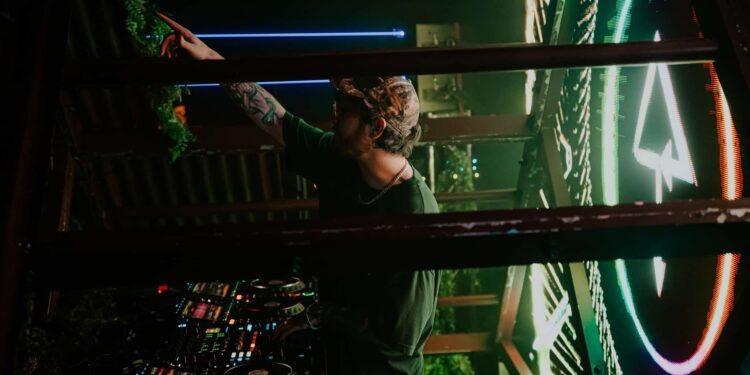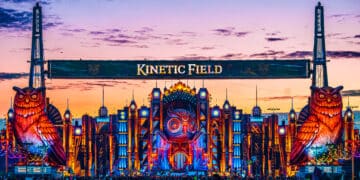One month after Insomniac filed a lawsuit against Club Space’s minority owners, the defendants have countersued the leading US rave promoter.
One month after Insomniac filed a lawsuit against Club Space co-owners David E. Sinopoli, Davide L. Danese, and Jose Coloma Cano, the three nightlife entrepreneurs have countersued — and their complaint recounts a different version of the same series of events.
Sinopoli, Danese, Cano, and their companies — referred to as the CDD Parties throughout both court documents — filed their countersuit yesterday, September 24, in a Florida District Court. It condemns many of the claims made by Insomniac’s legal team, starting by denying that Insomniac’s stewardship led to a 700% increase in Club Space’s profit between 2019 and 2025 and arguing that the behemoth promoter’s “only involvement in Club Space has been to collect profit.”
The CDD Parties’ complaint also refutes Insomniac’s allegation that they “failed to disclose” their position in the real estate of the Factory Town venue. They claim that, in reality, Insomniac declined their proposal to join them in purchasing the space and even complained that they were making “too much money” on events there when the venture proved successful.
After both sides went into mediation earlier this year, the CDD Parties withdrew $2.9 million from a company account, according to both complaints. Where the narratives diverge is that the countersuit claims that Insomniac agreed to pay them that amount “in consideration and satisfaction of all sums” related to the Factory Town dealings from their joint account, whereas the initial lawsuit alleged that the CDD Parties took it from the account before the settlement agreement was signed.
The CDD Parties’ complaint goes to great lengths to paint a picture of Insomniac ignoring numerous emails requesting necessary information while planning for Factory Town parties Hocus Pocus and Art Basel. It includes screenshots of increasingly urgent communications, alleging that “Insomniac engaged in a pattern of stonewalling and strategic silence” and “made offers to various artists/talent” without the CDD Parties’ approval.
Insomniac’s lawyer, Jordan Shaw of Shaw Lewenz, argued that the emails have been cherry-picked in a video chat with EDM Identity. “If you look at the timeline of the emails and when they stopped complying, the story unravels, and that’s all I have to say,” he said. “They portray this as being some orchestrated silence when the total time period that we’re talking about is a matter of days. It’s easy to paint a picture of silence when you include a snippet and not the response to the email, which, in most instances, happened within 48 hours.”
The countersuit does not address Insomniac’s allegation that the CDD Parties had planned a smear campaign against Insomniac Founder and CEO Pasquale Rotella. In an email to EDM Identity, Bruce Weil of Boies Schiller Flexner — the firm representing the CDD Parties — said, “There is no ‘smear campaign.’ The counterclaim simply shows that the past is prologue for Mr. Rotella and Insomniac.”
But the CDD Parties’ complaint itself does include personal attacks against Rotella. After delving into the world-famous entrepreneur’s history of run-ins with the law, it states, “Rotella is not just a criminal and a fraud. He is also insufferable to work with. The CDD Parties have had the misfortune of witnessing and experiencing first-hand Rotella’s cruelty, self-centeredness, and volatility towards his business partners and/or employees.”
“[The CDD Parties] are feeling extremely disappointed by how Insomniac chose to treat them at Factory Town and how Insomniac is now retaliating against them in Club Space,” according to a source familiar with the situation who spoke with EDM Identity on the condition of anonymity. “If Insomniac continues doing what they’re doing in every region, they will eliminate independent promoters and block everyone out of the major markets, killing creativity and freedom in the dance music community.”
“Their counterclaim is exactly what we expected,” said Shaw. “The fact that they’re relying on social media posts and dropped charges from 20 years ago tells you all you need to know about their current claims. The facts are the facts.”
“The judges’ orders are clear, and the facts are confirmed, even in CDD’s own filings. They sold the failing business, took the payout, and are trying to rewrite history for personal gain,” said a separate source familiar with the situation who also spoke with EDM Identity under the condition of anonymity. “Pasquale has dedicated his life to advancing the electronic dance music community, supporting independent promoters, fostering underground culture, and building a global movement without institutional or financial backing. Club Space has been successful and will continue to grow under Insomniac’s leadership. These same individuals have a track record of pushing out partners and employees, so it’s interesting that they now paint themselves as victims while attacking the very people who saved them.”
“The truth of the matter is, while Pasquale was integral in implementing the vision that led to the success of Club Space, he was not involved with much, if any, of the allegations in the counterclaim,” wrote Insomniac Chief Legal Officer Ian Humphrey in a statement. “He sought to distance himself from these individuals once they showed their true colors. Fortunately, the truth is memorialized in the agreements and writings that support our claims and reject theirs. We look forward to the opportunity to present that to the court and to the community and to continue to uplift the Miami music scene.”
No court dates have been set for the proceedings in the civil case between Insomniac and David E. Sinopoli, Davide L. Danese, and Jose Coloma Cano at the time of writing.








